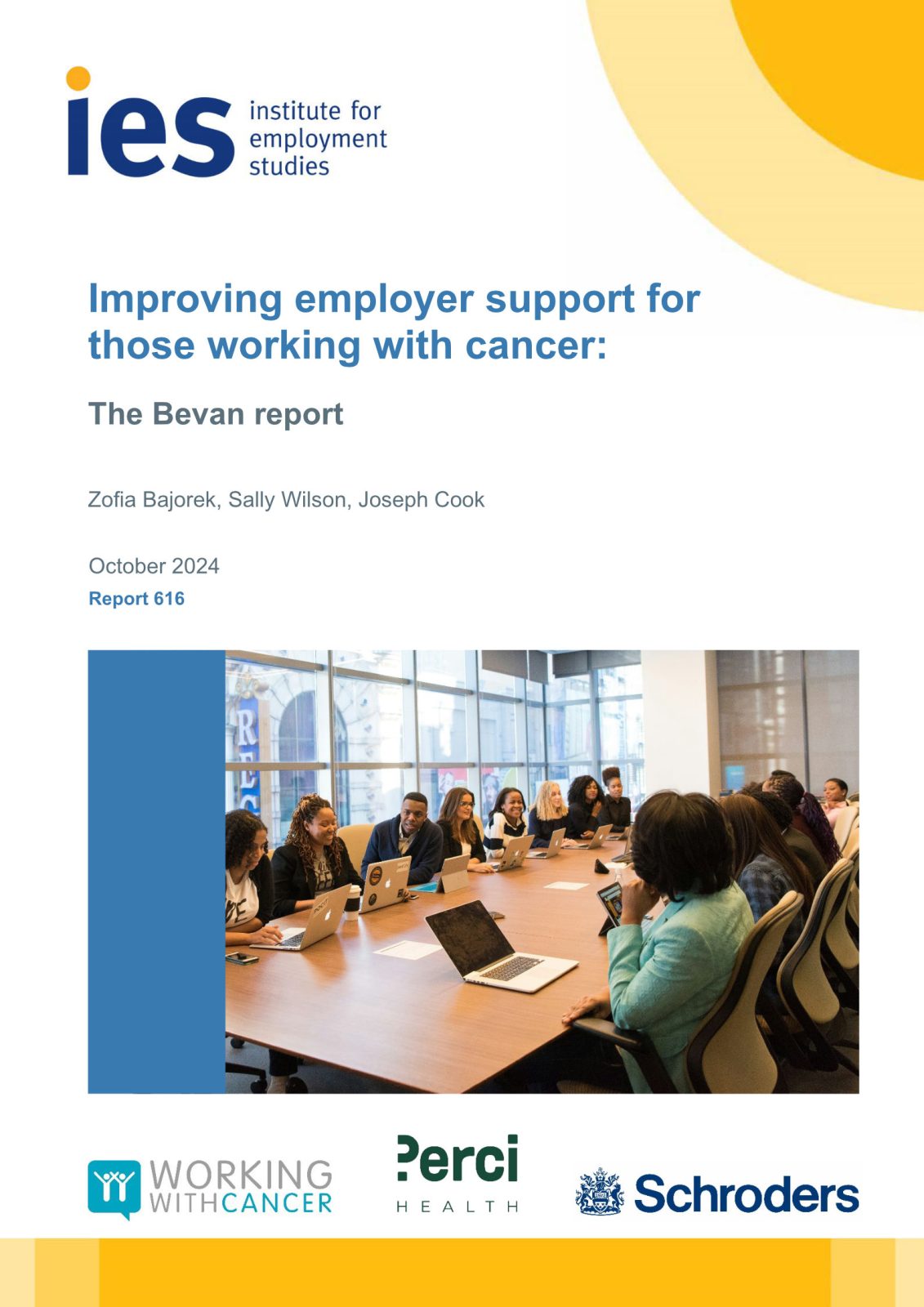Welcome to Working With Cancer
What can you do to manage cancer and work? Have you just been diagnosed with cancer and you’re worried about whether you can continue to work? Or, do you have a close relative affected by cancer and you want to know how you can adjust your working patterns to care for them? Or are you an employer researching what to do when a member of your staff is affected by cancer, or looking to develop a policy to support staff affected by cancer?
We are here to support you and to bridge the knowledge gap between cancer and work.
Working With Cancer® helps employees, employers, the self-employed, job seekers and carers to manage cancer and work. We are dedicated to professionally guiding businesses to support employees who are impacted by cancer. Our trainers, coaches and policy advisors are all senior professionals from a wide range of industries who have experienced cancer and bring that lived experience and insight to their support.

We coach, train and advise employers, including health professionals, on how to successfully manage cancer in the workplace, Our skilled and supportive experts will ensure every organisation has the right tools, knowledge and guidance to support their staff in full compliance with employment law.
We also coach and guide individuals affected by cancer (including carers) on managing work, returning to work, remaining in work or finding employment at any stage during or after cancer treatment, including those living with advanced, secondary or terminal cancer.
Read, or download, the new summary of our services here: Working With Cancer launches new brochure
And also check out our 8 Top Tips for Managing Work and Cancer

And do look at New research we launched in autumn 2024 which reveals that many HR managers are ill-equipped to navigate the complexities of cancer and long-term health issues in the workplace. Working With Cancer’s report which was produced in conjunction with the Institute for Employment Studies (IES) shows that although many organisations are demonstrating areas of good practice, too many still do not take into account the specific needs of the increasing number of employees working with cancer. Too many organisations do not yet provide adequate information, training and support to their HR and line management teams. This new report calls for organisations to develop specific cancer policies, provide training for HR and line managers and review current employee benefits to better support employees with long-term health conditions.
Put our lived experience to work so you, or your team, can better work with cancer
There are around 900,000 people of working age living with cancer in the UK. This number is expected to increase to 1,150,00 by 2030. For those affected by cancer, work is important. A job can restore a sense of normality and wellbeing as well contributing to financial independence, but many cancer survivors find returning to work a struggle as they deal with cancer’s short- or longer-term side effects.
A survey in 2012 showed that although over 80% of those who were working when diagnosed with cancer thought it important to continue working, 47% had to give up work or change their roles as a result of their diagnosis. Another survey in 2016 showed that 20% faced discrimination and 35% had negative experiences.
For working carers, things can be just as difficult. Few employers have a carers’ policy and many carers are hesitant to ask for time off work in case it affects their employment prospects.
Employers often find it tough too – knowing the right thing to say and when, and what to do. Getting it right can significantly enhance an employer’s reputation.

